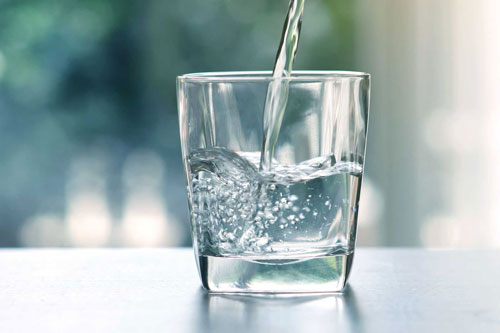Hard water causes mineral buildups, damaged appliances, and a whole host of other issues. If your current water supply contains excessive minerals, you’re likely looking for a way to soften the water. Water softeners help remove minerals and reduce the effects of hard water; they’re the perfect way to improve your current water supply.
Traditionally, water softeners have involved salt-based mechanisms. While this is an effective way of softening your water, salt-based solutions require large salt blocks and constant monitoring. Salt-free alternatives allow homeowners to avoid the maintenance associated with a salt-based system.
The water specialists at Atlantic Blue Water Services can walk you through each type of system to find one that best fits the needs of your home or business. To give you a general idea, let’s take a look at some of the general differences between salt and salt-free water softeners.
Salt-based Water Softeners
Salt-based water softeners, like our CareSoft Elite, are so-called true water softeners that reduce the number of minerals in hard water. Most salt-based systems use resin beads to remove magnesium and calcium; sodium ions are then used to replace the hard water minerals. This will drastically improve the quality of your water, and ensure that mineral buildups don’t occur in your taps and appliances.
Salt-Free Water Softeners
On the other hand, salt-free water softeners are not actual water softeners. Instead, this type of water treatment is typically referred to as conditioning. Salt-free systems don’t remove any of the minerals from the water. Instead, they change the form of the minerals to prevent them from attaching themselves to surfaces.
This type of water treatment will change minerals into crystals. It reduces their impact on surfaces, glassware, skin, and clothing.
Which is Best for Me?
The system that’s best for you will depend on your own preferences. While there’s no doubt that salt-free systems offer convenience, they don’t actually remove the minerals from the water. If you want a true water softener, a salt-based system is the only option.
On the other hand, salt-based systems can be extremely large and inconvenient. As you need space for the salt blocks and resin beads, this is only a suitable option for residents that have plenty of room. If you live in a compact home, a salt-free system might be the better choice.
Additionally, you won’t have to worry about constantly ordering new salt blocks and replacing them. Salt blocks for salt-based systems are large, heavy, and a lot of effort to change. If convenience is your priority, a salt-free system is likely more suitable.

Do I Need a Water Softener?
If you’re unsure if you need a water softener, take some time to consider the water’s current quality. If you have hard water in your home, you’ll probably have already encountered some of the associated issues. You’ll notice scale, calcium buildups, and other issues pretty quickly.
If you’re still unsure, we can offer water testing services at Atlantic Blue Water Services. As the region’s most trusted water specialist, we can help you determine the quality of your water. Our state-of-the-art water testing lab can identify the current mineral concentration levels in your water.
Not only will this help you determine how hard your water is, but it can also help you spot other contaminants and issues in your water. If you want your family to have access to the cleanest water possible, it’s critical to test your current water supply.
Contact Atlantic Blue Water Services for Industry-Leading Water Treatments
At Atlantic Blue Water Services, we offer much more than just water testing services. We also provide our clients with industry-leading water treatment services and solutions. If you’re searching for the best way to soften your water, we’re here to help.
We also offer education and other resources for families that want to learn more about water quality and its impact on our health. Feel free to call us at 410-840-2583 for more information.
